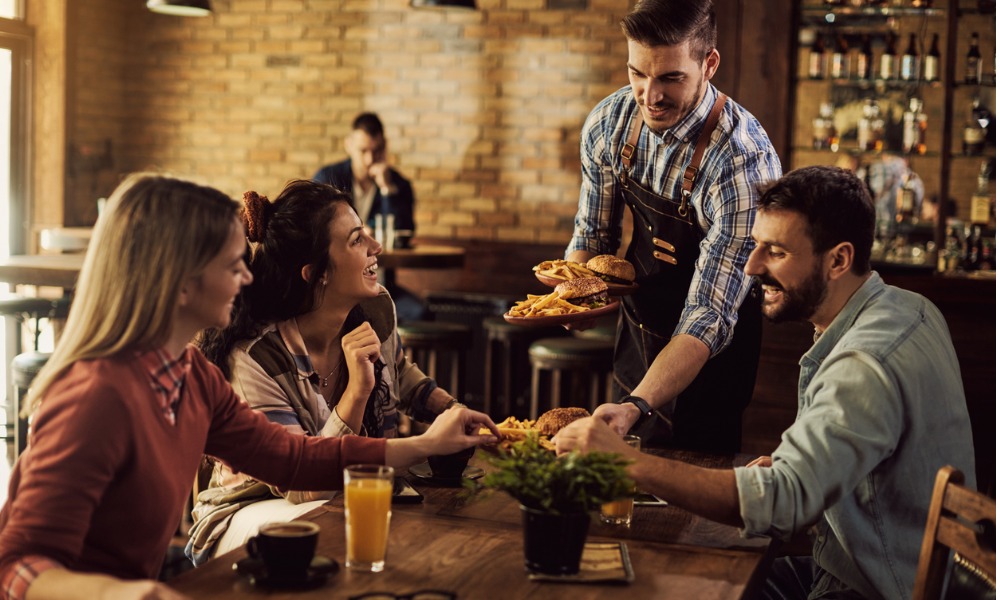
'We've got an $18-billion industry that's on life support'

Restaurant groups in British Columbia are asking the federal and provincial government to make some changes as the sector continues to face challenges this year.
The British Columbia Restaurant and Foodservices Association (BCRFA) and Restaurants Canada launched the “Save BC Restaurants” campaign to raise awareness about what’s going on in the “struggling sector”.
“The last few years have been incredibly tough on restaurants in British Columbia,” said Ian Tostenson, CEO of the BCRFA, in the report. “Pandemic debt, skyrocketing inflation, labour shortages, cost pressures. Many of these businesses are holding on by the skin of their teeth.
“If we don’t act quickly, a lot of these places could close down. People could lose their livelihoods. The loss of a longtime restaurant can be devastating for the communities, families, and workers that have come to depend on them.”
Currently, 50% of foodservice and hospitality businesses in B.C. are unprofitable, and restaurant bankruptcies have increased by over 48% in the last 10 months, according to a report from City News, citing the campaign.
“They are trying to stay alive, but they have all this regulation,” Tostenson said in a Global News report.
“We’ve got to find solutions that are practical, that don’t cost a lot of money to the taxpayer and we get on with it.”
Staffing is by far the biggest problem for restaurant owners, hospitality consultant and Humber College instructor Joel Sisson said in a previous HRD Canada report.
More than 15,000 restaurants operate in B.C., employing more than 185,000 workers, according to BCRFA and Restaurants Canada.
The problem though is that the hospitality sector is “more regulated” and has been “hit harder” by the COVID-19 pandemic than other industries across the country, said Tostenson in a City News report.
Worse, these regulations are “uncoordinated,” he said, adding it’s “like an orchestra with no conductor and everyone’s playing a different tune.”
“We’ve got an $18-billion industry that’s on life support. There’s a lot of things that government can do that doesn’t cost a lot of money, to get this industry back to where it should be,” he added.
The two groups are hoping that governments will change policies and bylaws regarding business approvals, such as patio approvals seen in regions across B.C. during the summer.
“The bureaucracy complicates these things,” said Tostenson.
“There’s certainly safety things on patios we have to be [aware of] but let’s just get on with it. They have to realize that the small business owner, any business owner, doesn’t have the time to be chasing websites and government regulations and trying to understand this stuff,” he said.
The groups are also hoping the government will change the threshold from $500,000 to $1 million under the province’s employer health tax.
The groups are also hoping for harmonized liquor rules and cost offsets and relief programs. They also want the government to take a look at and accelerate the skilled foreign worker program to address labour shortages in the industry.
By 2021, more than 250,000 restaurant workers had already quit to find new careers, CBC previously noted, citing a report from the Canadian Centre for Policy Alternatives (CCPA).
In response to the groups’ requests, Brenda Bailey B.C.’s minister of jobs, economic development and innovation, said the province supported businesses during the pandemic, according to the City News report.
During that time, the B.C. government provided grants, she said. B.C. also continues to support restaurants in other ways, including a program that gives businesses money for vandalism repairs and prevention, cap on food delivery fees and wholesale liquor pricing, she said.
The number of restaurants tapping robots to do work traditionally done by humans is growing, according to a previous report.